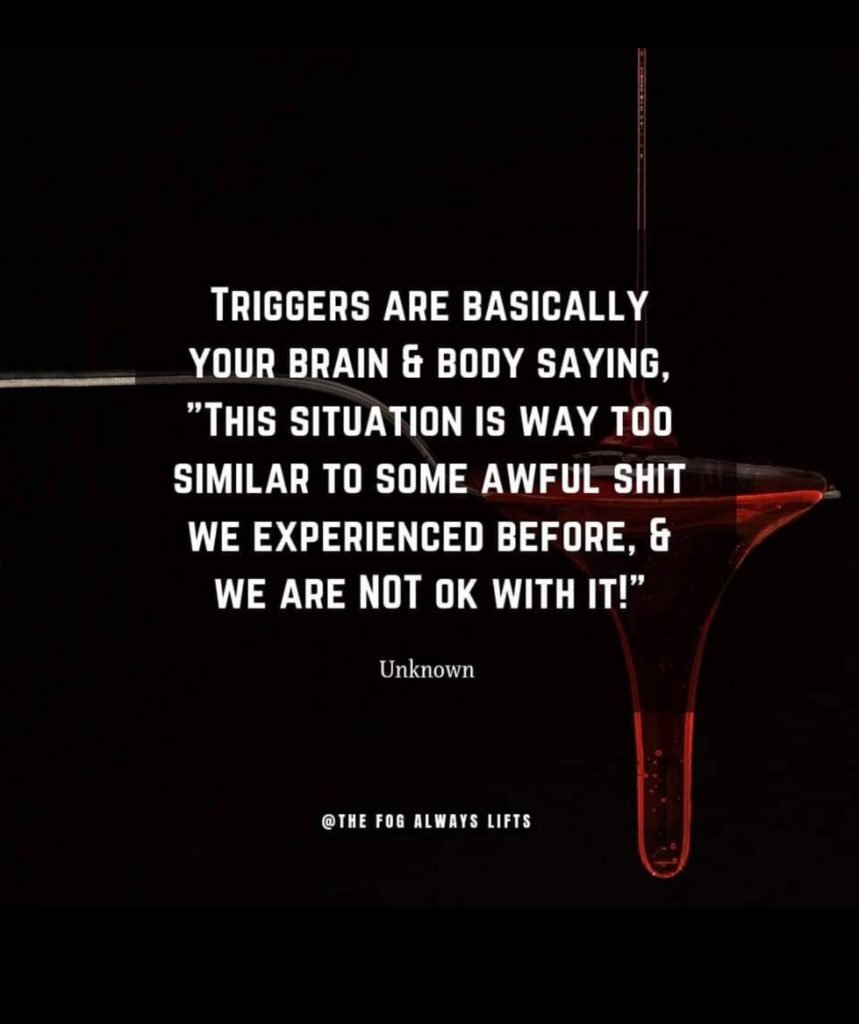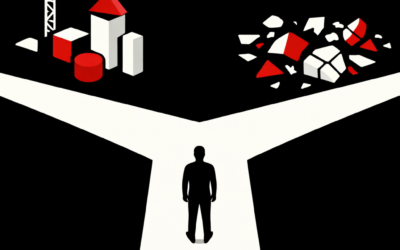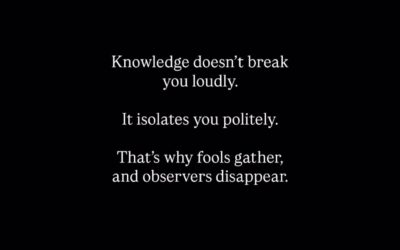Triggers are powerful reminders of past pain, as captured in the insightful message in the screenshot: “Triggers are basically your brain & body saying, ‘This situation is way too similar to some awful shit we experienced before, & we are not OK with it!'” This statement speaks volumes about the inner workings of our minds and bodies, highlighting how deeply rooted past experiences can be in shaping our present reactions.
When we experience a trigger, it’s our brain and body’s way of alerting us that something in the current situation is reminiscent of a past trauma or distressing experience. These reactions are often automatic and intense, sometimes catching us off guard. Recognizing this can be the first step toward greater self-awareness and understanding. By acknowledging our triggers, we can begin to navigate them more consciously, managing our responses and working through the emotions they bring up.
But the significance of understanding triggers doesn’t stop with ourselves. Once we grasp the nature of our own triggers, we gain insight into the experiences of others. This understanding can foster empathy, allowing us to see that when someone else is triggered, their reaction is rooted in their past, not necessarily in the present moment. It helps us not to take things too personally because their response is more about them than about us.
However, if we are aware that we’ve contributed to someone’s triggers—whether intentionally or unintentionally—there’s a responsibility to be mindful of that. In such cases, being supportive means avoiding behaviors or situations that might exacerbate their triggers, showing understanding rather than judgment.
In essence, triggers remind us that we all carry the weight of our experiences, which can color our interactions with others. By becoming aware of this, we can approach our relationships with more compassion and patience, understanding that reactions are often more complex than they appear on the surface. This awareness not only aids in our personal growth but also helps in creating a more empathetic and understanding environment for everyone.





0 Comments